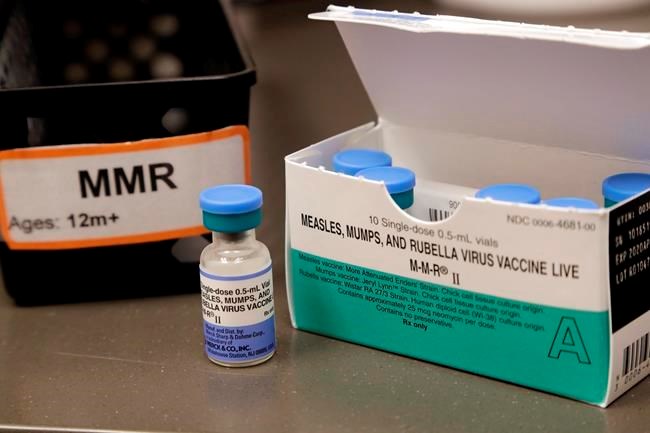MONTREAL — Despite a rising number of measles cases in and around Montreal, one of the doctors leading the public health response to the outbreak says he's optimistic the virus can be brought under control.
Health workers in the city are aware that measles is spreading and are looking for new cases of the highly transmissible disease, said Dr. Paul Le Guerrier, the medical officer responsible for immunization and vaccine-preventable diseases at Montreal's public health department.
"I think the medical profession is now very much aware," he said in an interview Wednesday, adding that people who may be infected are СŔ¶ĘÓƵ tested quickly and no longer spending long periods in hospital and clinic waiting rooms where they can infect others.
Quebec's Health Department reported on Wednesday there were 29 measles cases across the province, up from 17 on March 11, with most of them in or around Montreal.
Le Guerrier said the public health department has a team working to find people who may have been exposed.
"I think we're doing a really good job of identifying these cases and then identifying the contacts of these cases and then all the areas where the cases could have been," he said.
Children under 12 months old, pregnant women and others who are at risk of serious illness who may have been exposed are СŔ¶ĘÓƵ prioritized for preventive treatment, Le Guerrier said, adding that a vaccination campaign is also underway in Montreal schools.
"I think the real problem with this disease is that measles is a very, very contagious disease. It's more contagious than COVID, than Omicron," he said. "One child can transmit it to 14 to 18 other children that are not adequately vaccinated, or even adults that are not adequately vaccinated."
Le Guerrier said 10 of the 16 cases in Montreal involve children under four years old.Â
Two of the Montreal cases are directly linked to travel, while two others were in family members of those travellers, he said, adding that the other cases were acquired through community transmission.Â
"I'm really optimistic that we're going to be able to contain this outbreak, but the risk is going to be continuous for at least one or two years, because there are major outbreaks in the (United) States, in Europe, in Africa, in Asia," he said, adding that if someone who isn't adequately vaccinated travels to one of those regions, they could bring the virus home with them.Â
This report by The Canadian Press was first published March 20, 2024.
Jacob Serebrin, The Canadian Press



